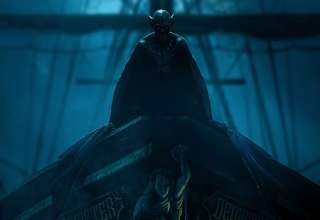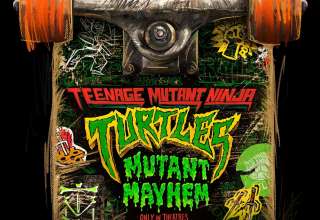Is Blade Runner the masterpiece that so many claim it is? It wasn’t viewed that way when it was first debuted back in 1982 after it crashed at the box office, but time helped its standing in a way that allowed it to become one of the more prominent items in science fiction. Once that occurred, this Ridley Scott directed picture came to be seen as a classic in the eyes of critics and fans alike. That kind of thing doesn’t happen too often, but at least a few films in the past have been able to gain that kind of traction after their initial release.
In the case of Blade Runner, what exactly was it that changed the minds of so many? Why did people come to believe it had more value than originally thought? To provide my theory on that, I’ll be taking a closer look at its content and how audiences who love what it offers may have come to embrace and understand all that came along with it. Needless to say, there are spoilers up ahead.
In my view, a masterpiece is a work of art that is at least approaching some legitimate degree of perfection. By definition however, it’s essentially a supreme intellectual or artistic achievement in terms of skill or excellence. Since perfection and even complete excellence are extremely difficult to achieve, creating a masterpiece of any kind is quite the rare feat. But let’s say for a second that it isn’t. Let’s say that perfection or supreme excellence is easier to accomplish than that in the worlds of cinema and science fiction.
Believe it or not, this highly regarded sci-fi feature was a movie that I hadn’t seen until well into adulthood. Even then, I actually had it in my possession for a couple of years before watching it. At some point, I finally just gave in and watched it after leaving it to collect dust for a while. I guess I chose to end my self-imposed stand-off with it mainly due to news of the sequel being planned. And since I heard about how good the original was, I decided to eventually give both movies a chance.
The first thing that got my attention in Blade Runner was the pacing. This science fiction flick, starts off with a slow, dark tone and manages to continuously travel down that path for quite some time. This kind of speed is tolerable during the opening phases, but it becomes more and more difficult to follow what’s going on as it moves along during some of the early portions. The pace got so slow that I eventually had to repeatedly remind myself what Rick Deckard’s purpose was while I was watching and attempting to settle in.
Although it gets lost a bit, the job assigned to Deckard (Harrison Ford) is one asking him to hunt down four replicants, a group of biorobotic beings who just made their way back to Earth after being banished. These particular versions are virtually indistinguishable from humans. Since these lifelike androids resemble people so much, it’s nearly impossible to tell who is a replicant and who isn’t. That’s why a specific test with a series of detailed questions was designed to separate man from machine whenever it was necessary.
With this knowledge, our protagonist is sent out into a dangerous world to look for beings who are equipped with superior strength and speed while usually being smarter than the humans who roam the streets and are running the world. It’s clearly not the type of job that just anyone can do. Your average police officer isn’t going to get it done here. To apprehend replicants, you need bounty hunters like Deckard known as “blade runners” to get the kind of results they’re looking for.
A blade runner is essentially a special type of police officer who’s been given the task of catching replicants. They don’t actually capture them per se. They’re asked to track the androids down, ask them a significant number of questions to measures their emotional reactions and “retire” (kill) them if its determined that they’re not human. Their aren’t too many who can do this kind of work. That’s one of the reasons behind forcing a man like Deckard out of retirement for this assignment.
While Deckard’s investigation has him pursuing these potentially deadly outlaws, the replicants themselves are searching for answers from their creator. Even though they share the visual characteristics of their human counterparts, what separates replicants and humans the most are the lifespans that they’ve been handed. Unlike actual people who can live for several decades, these man-made beings are programmed to exist for a maximum of four years. Because of this, finding the man who created them is imperative.
Once their four years are up, all that they had fades away like “tears in rain.” That yearning to exist beyond their restrictions is why they’re out there on the streets of this dystopian version of Los Angeles willing to do whatever they can to get the results they want. And the dangers they’ve proven to pose to humans is the primary reason why one of the best blade runners there is has been brought back into the business to stop them.
For a movie that was released in 1982, Blade Runner is actually the kind of film that’s very nice to look at even today. In terms of legacy, the imagery that is seen here made quite the impact on pop culture and many forms of entertainment. When you see films or television shows or even video games with huge images sprawled across the screen, there’s a great chance that the inspiration for it was drawn from Blade Runner. You figure that this is one of the aspects that makes this something more than just another movie. When you do that, credit has to be given, but it’s not enough to make it a definite classic.
What could turn this into a masterpiece in the eyes of its most devoted fans? I’d venture to say that the themes play a large part in it. For many, this is the sort of thing that attracts them to films in general. While I fully understand why, the entertainment factor has always been the most important aspect of any form of entertainment. With the opening scenes being so long and drawn out, it would be difficult for me to see this as anything resembling a work of perfection. This isn’t to say that the rest of Blade Runner isn’t worthwhile, but it does simply point out that the lumbering pace early on is an obvious flaw that prevents it from reaching the heights that it could have.
After we move from the initial scenes, the pace does manage to pick up. Once that takes place, Blade Runner begins to improve and improve. With that, it’s difficult to call it an action film. It turns out to be more of a drama as we get into the most important elements of the plot. This is another aspect of the picture that makes this something to watch. There’s some legitimate suspense and action, but they manage to create characters with precise and clear motivations that assist in carrying you to where you need to be at the correct moments.
Anyway, the themes and messages including social hierarchy are important factors when analyzing Blade Runner in its entirety. Throughout its duration, we’re asked to examine the people who exist within this world where the distinguished part of society who rule literally live over and away from everyone else. Not only do they spend their time living above all others, these individuals are likely to thrive in a part of a large city that’s clean and unblemished. They couldn’t be bothered by the replicants or the average citizens below them who have no choice but to fight for space on the very streets that they wrestle through everyday.
The upper class is also protected from the weather that we see through much of Blade Runner. Since they’re always shot inside, it seems as if they’re shielded from those earthly conditions while the less fortunate have to deal with raindrops continuously falling on their heads unless they’re in a bar or some other shady establishment. These citizens who spend all of their time on the street level are a blended bunch packed into a murky, crowded area with very little room to operate. This includes the police and blade runners like Deckard who serve to deal with problems that the elite won’t ever have to face themselves.
I imagine that this is supposed to be seen as some sort of look at issues that ail society in the real world. We have certain people who are protected from things that others have to deal with in order to survive. And those who are separated from the perils that most others need to face may be less likely to empathize with those who do. In this film, that’s why they have people like Deckard who work as kind of like enforcers. People like him are the ones who have to uphold the laws of this realm that are made by the most important groups.
The most targeted and unprotected class in the film are the replicants. I don’t know if they’re always the focus in this version of L.A., but in the film’s story, they most definitely are. While the others are humans, this small faction wants to be human. Unfortunately for them, that turns out not to be possible in the end, but the journey they take to potentially achieve a normal life is one filled with desire, determination and death. And although they lack empathy for others, you might be able to have some for them because their motivations are illustrated so clearly.
However, murder is likely something that prevents them from being completely sympathetic figures in the eyes of the audience. You can understand their desire to live longer and be human, but they clearly lack the proper levels of compassion themselves. Their bloody war against humans in the first place is why they were sent to off-world colonies in space. I can’t say that this was done on purpose or whether they just needed to create a more obvious villain. What I will say is that it leads to more questions about humanity and even selfishness on the parts of all parties involved.
One thing that baffled me was the constant question of whether Deckard was a human or a replicant. In reality, this never made sense because it’s clear that he’s only a man. He never shows any of the strengths or advantages that the replicants have, so I don’t know how people don’t see this as being obvious. Him being a human is made even more clearer by the announcement of a sequel three and a half decades later with Harrison Ford returning in the role.
Maybe it’s just fans wanting to give the film’s content even deeper meaning. It could also just be that some like to hype up conspiracy theories within a movie that they’re into. Then again, it could also be the fact that Ridley Scott thought that Deckard was a replicant. I know he was the director, but what does he know? He also thought Exodus: Gods and Kings was a good idea. While I can’t knock people for wanting the film’s protagonist to be something more than what he is for entertainment purposes, it’s clear that Rick Deckard is just a persistent bounty hunter who seems to question what being human actually means.
If you buy into Deckard being a replicant, that could help in leading you into seeing Blade Runner as a masterpiece. Leaving that question out there adds to the mysteries concerning him and the film. It makes you question how his feelings about what it means to be human plays in his mind if he knows that he’s also on a very limited amount of time. If you don’t allow yourself to be sucked into that theory, you may see this sci-fi feature as a movie that is simply good. Then again, it may also be something that you don’t enjoy at all. Seeing the reaction that it first received, that appears to be a distinct possibility.
One last thing that seemed to help Blade Runner were the constant changes made over time. There are at least seven different versions of this picture floating around. From what I’ve heard countless times, it drastically improved once they removed the narration from Deckard. I watched the version without that, so I can’t exactly say how much the film actually benefited from taking that feature away. I’d imagine that and the altered ending had a lot to do with the latest perspective that people have of it.
The outcome in this version offers a greater range of ambiguity when comparing it to what’s been presented before it. This keeps up with what I was saying about allowing the questions to persist. With this ending overtaking the original, the mysteries are even more pronounced as much of what’s here remains vague. While it clearly doesn’t actually finish with a bad ending, this allows those who may frown upon “happy endings” to be satisfied. I also believe that leaning toward uncertainty creates potential for a stronger emotional reaction from viewers because events provoking those kinds of responses have a tendency to last longer in our hearts and in our minds.
All of this could be why many fans of Blade Runner view it as a masterpiece. For me however, it’s impossible to see it that way when you dig a little deeper into its content. With its tendency to linger being so disruptive, Blade Runner is only a good movie that could have been a truly wonderful experience due to its entertainment value and its thought-provoking elements. If it’s kept in its specific category of science fiction, I can see this being viewed as a great picture for some, but having it reach that masterpiece or classic status remains an unattainable achievement.






















